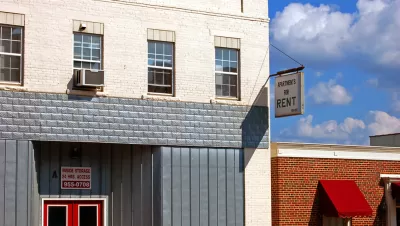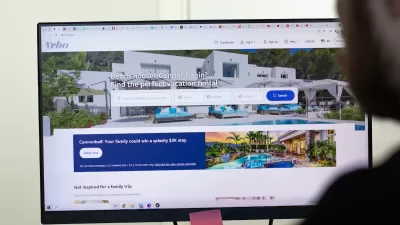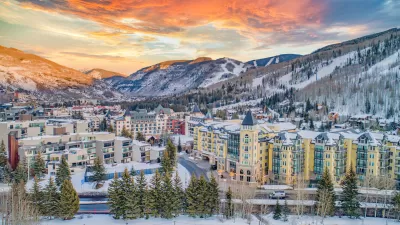Is Airbnb a prime target for regulation, or is it just another way to expand the marketplace for bedrooms? Dan Bertolet urges caution. After all, couldn't less Airbnb just mean more hotels?

In cities like Seattle, where concerns about local affordability have been brewing for a while, short-term rental platforms like Airbnb look like a threat. As the common wisdom has it, they cut off the supply of long-term units, driving rents up. "In response, the Seattle City Council is considering new restrictions targeted at hosts who use Airbnb or similar services as a sort of mini virtual hotel."
But Dan Bertolet of the Sightline Institute sees no reason to panic. While Airbnb's critics aren't necessarily wrong, we don't know enough yet to make a judgement. For one thing, restricting Airbnb would place additional regulatory pressure on an already constrained market. Bertolet writes, "web-based STRs, LTRs, and hotels are each interrelated components of the same citywide housing market, each utilizing the same basic resource: bedrooms."
He goes on, "We also know that housing markets in North America are extremely rigid and inflexible, discouraging all manner of inexpensive housing that could otherwise be helping to ease the affordability squeeze."
As usual, it all comes back to supply and demand. And the demands of Airbnb users more closely align with those of hotel guests than long-term renters. "Hotel and apartment developments compete for the same scarce urban land, so more new hotels means fewer new apartments, and fewer apartments means higher rents. If so, then STR restrictions may be a zero-sum game for affordability."
His overall message is one of caution, but Bertolet also notes that the hospitality industry wouldn't be so vigorously opposed to Airbnb if it didn't cut into their business.
FULL STORY: Why Quashing Short-Term Rentals Is a Zero-Sum Game for Housing Affordability

Maui's Vacation Rental Debate Turns Ugly
Verbal attacks, misinformation campaigns and fistfights plague a high-stakes debate to convert thousands of vacation rentals into long-term housing.

Planetizen Federal Action Tracker
A weekly monitor of how Trump’s orders and actions are impacting planners and planning in America.

In Urban Planning, AI Prompting Could be the New Design Thinking
Creativity has long been key to great urban design. What if we see AI as our new creative partner?

King County Supportive Housing Program Offers Hope for Unhoused Residents
The county is taking a ‘Housing First’ approach that prioritizes getting people into housing, then offering wraparound supportive services.

Researchers Use AI to Get Clearer Picture of US Housing
Analysts are using artificial intelligence to supercharge their research by allowing them to comb through data faster. Though these AI tools can be error prone, they save time and housing researchers are optimistic about the future.

Making Shared Micromobility More Inclusive
Cities and shared mobility system operators can do more to include people with disabilities in planning and operations, per a new report.
Urban Design for Planners 1: Software Tools
This six-course series explores essential urban design concepts using open source software and equips planners with the tools they need to participate fully in the urban design process.
Planning for Universal Design
Learn the tools for implementing Universal Design in planning regulations.
planning NEXT
Appalachian Highlands Housing Partners
Mpact (founded as Rail~Volution)
City of Camden Redevelopment Agency
City of Astoria
City of Portland
City of Laramie





























